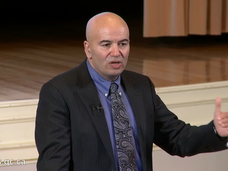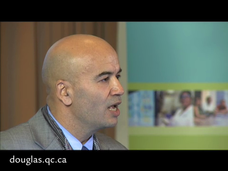
Imagine if you were unable to think clearly, recognize reality or behave appropriately. And to make matters worse, you also suffered from unjustified, even what you or others would normally consider bizarre beliefs. This is what it is like to have psychosis. Left untreated, it wreaks havoc on affected people and their loved ones (for example, increased risk of medical problems, pre-mature death and social decline). Only through education can we ensure that these problems are treated early by identifying them early-and thus dramatically boosting the chance for a fulfilling life.
What is it?
Psychosis is not a specific disease but rather a collection of symptoms associated with different mental problems.Like fever is a symptom of the flu or other types of viruses.
Psychosis is a temporary loss of contact with reality and is a sign of an underlying mental illness: schizophrenia, Alzheimer's Disease, bipolar disorder or psychotic depression for exemple. Psychosis is not a permanent state; it can be treated and the majority of people afflicted can live satisfactory lives.
Symptoms of psychosis
Early symptoms include:
Mood, sleep and appetite changes; loss of energy or motivation, isolation, difficulty in concentrating or remembering, problems at school or work.
Specific symptoms include:
- Disturbances in perception (hallucinations, e.g. hearing voices or seeing things that are not there)
- Bizarre or clearly unjustified beliefs and judgements (delusions, e.g. beliefs of being persecuted with no external evidence, or thoughts of people being able to read one's mind
- Disorganized thinking (speaking in ways that are confusing), or bizarre behaviour
Who is affected?
- Young people (men aged 15-30 and women 18-35) are at particularly high risk
- Around 4 to 5 out of every 100 young people will experience a psychotic episode at some point in their lifetime. Most will fully recover
- Psychosis associated with schizophrenia tends to strike men more often than women
- Psychosis can happen to anyone. An episode of psychosis is treatable, and it is possible to recover
Causes of psychosis
- Although the exact cause is unclear, we know that psychosis results from brain abnormities, particularly in chemical messenger systems involving dopamine and serotonin
- Psychosis can be associated with schizophrenia, bipolar disorders, dementia (Alzheimer's and other degenerative brain disorders), stroke, brain tumours, heavy use of and adverse reaction to drugs or alcohol, family history of psychosis
Mini Psych School videos
| Can psychosis be prevented ? (2012) | The delusions about schizophrenia and psychosis (2009) |
Watch other Mini-Psych School lectures.
Treatments of psychosis
- Early treatment is vital. It dramatically increases the chance of a full or near-full recovery. Recovery means reducing the impact of a disorder so that the person affected can take charge of their life again. Recovery decreases the risk of depression, suicide, violence, prolonged unemployment, or interrupted education.
- Highly-effective treatments are available, including a combination of antipsychotic medication and family intervention, cognitive behavioural therapy, supportive psychotherapy and case management, skills training, and education
Research at the Douglas
The following Douglas scientists specialize in psychosis research:
For more information,consult the mental health resources




